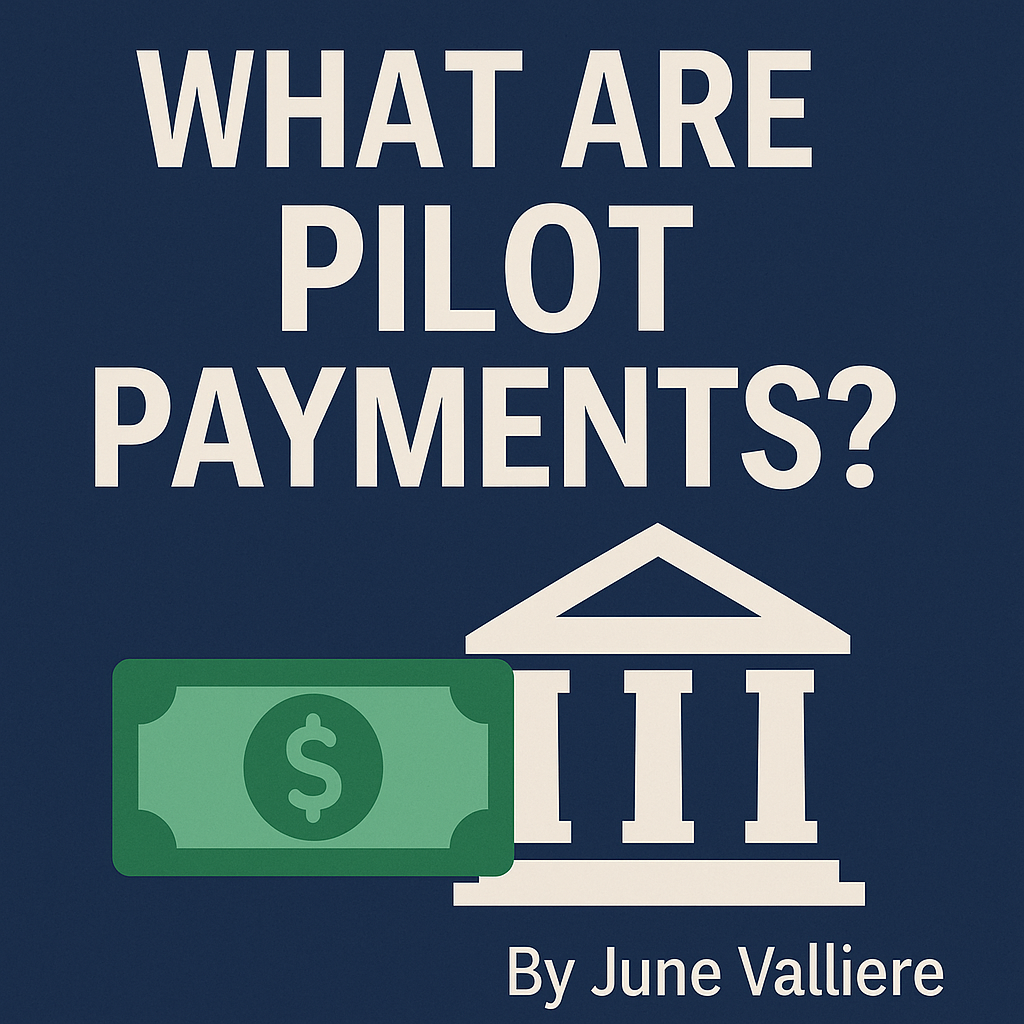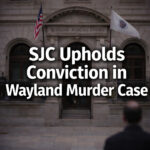By June Valliere
With the introduction of two new nonprofit expansion projects that will further strain town resources, as well as town officials discussing tax overrides, some Wayland residents are asking about PILOT payments.
Payments in lieu of taxes (PILOT) are negotiated payments made to a local government instead of traditional property taxes. These arrangements typically involve entities that are legally tax-exempt, such as nonprofit organizations or developers who agree on a specific project. Some nonprofit organizations, such as hospitals, universities, and churches, often own a significant amount of property, which is exempt from local property taxes. A PILOT agreement allows a city or county to recoup some of that lost revenue to help fund public services.
After the Carroll School announced its plans in September to expand, Wayland resident Peter Quandt sent an email to the town manager, the finance committee, and the Wayland Post, asking if the Carroll School made PILOT payments to the town. In a follow-up conversation, he said there was some discussion about PILOT payments to offset the loss of tax revenue from the private estate when the school purchased the property nine years ago. The PILOT payment discussion centered on the school either making a cash payment or allowing the town to use the school’s ball fields, according to Quandt.
Although it appears that Town Councilor Mark Lanza researched the applicability of a PILOT payment, there is no record of an agreement, and according to Tamara Keith in the Assessors’ office, no PILOT payments are currently made either by the Carroll School or any other nonprofit.
In a May 2, 2016, letter to the former town administrator, Nan Balmer, Lanza stated that Massachusetts law exempts nonprofit educational organizations from real and personal property taxes. However, if the school’s property is not taxable, the Town, acting through the Board of Selectmen, on the advice of the Board of Assessors, may enter into a payment in lieu of taxes agreement (“PILOT”) with the school. The amount of the payments is negotiable. The legal basis for the Town’s authority to enter into a PILOT with the School is Massachusetts General Law Chapter 40, Section 4.”
The Carroll School purchased land in Wayland in 2016 for $5 million to relocate its eighth and ninth grades and expand its facilities, a project that included an 11.4-acre property on Waltham Road with a large residence. The school received approval for construction on the property after addressing local concerns about traffic and property impacts. Wayland’s approval included conditions such as restricting parking to the property, prohibiting lighting or scoreboards on athletic fields, and setting limits on delivery and maintenance times.
Town Manager Michael McCall advised Select Board members at their October 6 board meeting that he is currently talking to officials from other communities about the types of PILOT programs they have in place. He indicated that some towns are working on developing PILOT agreement policies.
McCall also said some Wayland residents expressed concern to him about school expansions and nonprofit campuses with residences impacting town resources. He said, “it is time to help out and be good neighbors. If they have money to expand, they may have money to contribute to pay for the resources they are using.” McCall said that he identified a dozen properties that could potentially make PILOT payments. The town manager would need to negotiate all the agreements individually, McCall said.
How PILOTS Work
According to the Mass.gov website, PILOTs help minimize the revenue impact on communities hosting recreational areas, solar and wind farms, nonprofit institutions, and properties held by the Commonwealth. It states that municipalities can create local PILOT payment programs for nonprofits by establishing them through local ordinance or bylaw, with the crucial understanding that these payments are voluntary. No state law mandates or requires nonprofits to make these payments, so any program depends on negotiation and good-faith agreements between the municipality and individual tax-exempt organizations.
However, the Massachusetts Municipal Association (MMA) has made proposals to the state legislature to allow municipalities to implement a local-option PILOT program, which would allow them to require certain nonprofits to make annual payments. In 2025, the Massachusetts legislature considered bills that would empower municipalities to mandate PILOTs from large, non-profit organizations. Bills H.3264/S.1836The bills would enable cities and towns to require tax-exempt organizations with property valued at $15 million or more to make a PILOT payment. The proposed formula is the payment would be 25% of what the organization would have paid in property taxes if it were not tax-exempt. This legislation would make such payments mandatory, though cities and towns would still be able to create local bylaws to exempt certain organizations that provide critical social services or to accept community benefits in place of cash payments.
Already collecting voluntary PILOT payments from nonprofits are Boston, Cambridge, Groton, Holyoke, Worcester, Belmont, Brookline, Lexington, Southborough, North Hampton, Amherst, and Winchendon. Concord is in the process of rolling out a PILOT program. These can be long-term or multi-year agreements.
Boston asks larger nonprofits, often with more than a set amount in tax-exempt property, to make annual payments. Under Boston’s program, for example, a nonprofit’s payment can be fulfilled through a combination of cash and credits for the community benefits it provides. According to the City of Boston’ website, major schools, hospitals, and cultural institutions make a voluntary contribution to the city each year. Contributions come in the form of cash and community programs that uniquely benefit the City’s residents. As of April 24, 2025, collectively, the institutions contributed 76% towards the PILOT requested.
To create a PILOT program, according to the MMA, the city or town’s legislative body, such as a city council or town meeting, must vote to authorize a municipal officer to negotiate and execute a PILOT agreement. Since payments are not mandatory, the municipality must engage in negotiations with local nonprofits to secure their participation, but it must be a fair and consistent program, with the municipality establishing clear guidelines for determining the payment amount.
In addition to PILOTs, some Massachusetts municipalities use other mechanisms to seek financial or service contributions from nonprofits. Massachusetts home rule grants cities and towns the authority, under the state constitution, to impose fees, assessments, or agreements related to community impact as long as they are not inconsistent with state law, according to an article published in MassBarr eJournal written by Lawrence Friedman and Eric Wodlinger. However, according to the case law established in Emerson College v. City of Boston, fees must meet the three-part test: the charge must be for a particularized service; it must be intended to compensate the government for its costs; and not be used to raise general revenue. The receipt of the service and payment of the fee must be voluntary.
Massachusetts state law allows municipalities to collect fees for municipal utilities, such as water and sewer services. Some cities also charge nonprofits for services like trash collection, which are typically funded through property taxes, while others charge fees for public goods like street maintenance and snow removal. The fee may be based on a property’s size or street frontage rather than its assessed value. They can also charge for infrastructure projects that directly benefit specific properties, such as a new sewer connection.
Other PILOT Payments
The two other broad categories of PILOT payments, according to Mass.gov., are the state’s payments to municipalities for state-owned land (SOL) and from solar facilities. The SOL program, administered by the Department of Revenue (DOR), provides communities with payments in lieu of taxes on lands (but not buildings and other improvements) under state ownership. The land can be used for multiple purposes, including education, corrections, open space, and recreation. For example, the state pays over $8 million to twenty-nine communities through the watershed program, which is jointly administered by the Department of Conservation and Recreation (DCR) and MWRA, which protects the lands in the various municipal watersheds that comprise the MWRA system. Keith said that Wayland was accounting for SOL money through accounts receivable, but a representative in the Treasurer’s office said she could not provide an estimate of the funds the state paid to Wayland unless all the parcels of land were provided to them.
Massachusetts law grants a property tax exemption for the installation of solar power equipment, which until recently was understood to apply solely to residential properties. However, state law allows the use of PILOT agreements between the larger suppliers of solar power and municipalities to calculate future payments, as long as they are based on the full and fair value of land and equipment. Keith said that information was not available in the assessor’s office since the town manager negotiated those agreements.















